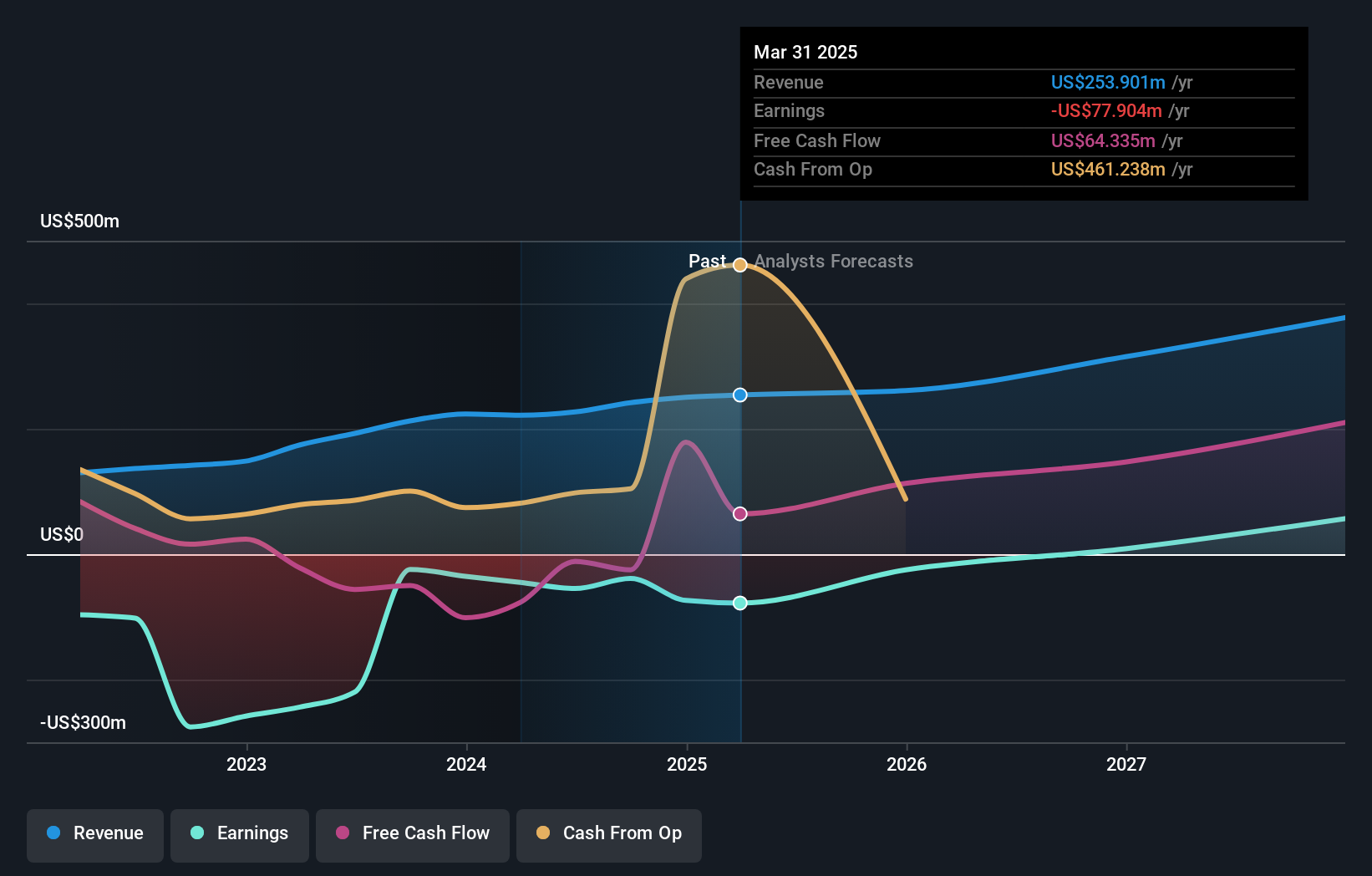
Key Insights
- Globalstar's significant insider ownership suggests inherent interests in company's expansion
- 59% of the company is held by a single shareholder (James Monroe)
- Insiders have been buying lately
To get a sense of who is truly in control of Globalstar, Inc. (NASDAQ:GSAT), it is important to understand the ownership structure of the business. And the group that holds the biggest piece of the pie are individual insiders with 61% ownership. That is, the group stands to benefit the most if the stock rises (or lose the most if there is a downturn).
Our data shows that insiders recently bought shares in the company and they were rewarded after market cap rose US$259m last week.
Let's delve deeper into each type of owner of Globalstar, beginning with the chart below.
See our latest analysis for Globalstar

What Does The Institutional Ownership Tell Us About Globalstar?
Institutional investors commonly compare their own returns to the returns of a commonly followed index. So they generally do consider buying larger companies that are included in the relevant benchmark index.
We can see that Globalstar does have institutional investors; and they hold a good portion of the company's stock. This implies the analysts working for those institutions have looked at the stock and they like it. But just like anyone else, they could be wrong. It is not uncommon to see a big share price drop if two large institutional investors try to sell out of a stock at the same time. So it is worth checking the past earnings trajectory of Globalstar, (below). Of course, keep in mind that there are other factors to consider, too.

Hedge funds don't have many shares in Globalstar. Our data suggests that James Monroe, who is also the company's Top Key Executive, holds the most number of shares at 59%. When an insider holds a sizeable amount of a company's stock, investors consider it as a positive sign because it suggests that insiders are willing to have their wealth tied up in the future of the company. With 4.0% and 2.9% of the shares outstanding respectively, The Vanguard Group, Inc. and BlackRock, Inc. are the second and third largest shareholders. Furthermore, CEO Paul Jacobs is the owner of 0.9% of the company's shares.
While it makes sense to study institutional ownership data for a company, it also makes sense to study analyst sentiments to know which way the wind is blowing. There is a little analyst coverage of the stock, but not much. So there is room for it to gain more coverage.
Insider Ownership Of Globalstar
The definition of an insider can differ slightly between different countries, but members of the board of directors always count. Management ultimately answers to the board. However, it is not uncommon for managers to be executive board members, especially if they are a founder or the CEO.
Most consider insider ownership a positive because it can indicate the board is well aligned with other shareholders. However, on some occasions too much power is concentrated within this group.
Our information suggests that insiders own more than half of Globalstar, Inc.. This gives them effective control of the company. Insiders own US$1.7b worth of shares in the US$2.8b company. That's extraordinary! Most would argue this is a positive, showing strong alignment with shareholders. You can click here to see if they have been selling down their stake.
General Public Ownership
The general public-- including retail investors -- own 18% stake in the company, and hence can't easily be ignored. This size of ownership, while considerable, may not be enough to change company policy if the decision is not in sync with other large shareholders.
Next Steps:
While it is well worth considering the different groups that own a company, there are other factors that are even more important.
Many find it useful to take an in depth look at how a company has performed in the past. You can access this detailed graph of past earnings, revenue and cash flow.
If you would prefer discover what analysts are predicting in terms of future growth, do not miss this free report on analyst forecasts.
NB: Figures in this article are calculated using data from the last twelve months, which refer to the 12-month period ending on the last date of the month the financial statement is dated. This may not be consistent with full year annual report figures.
Have feedback on this article? Concerned about the content? Get in touch with us directly. Alternatively, email editorial-team (at) simplywallst.com.
This article by Simply Wall St is general in nature. We provide commentary based on historical data and analyst forecasts only using an unbiased methodology and our articles are not intended to be financial advice. It does not constitute a recommendation to buy or sell any stock, and does not take account of your objectives, or your financial situation. We aim to bring you long-term focused analysis driven by fundamental data. Note that our analysis may not factor in the latest price-sensitive company announcements or qualitative material. Simply Wall St has no position in any stocks mentioned.